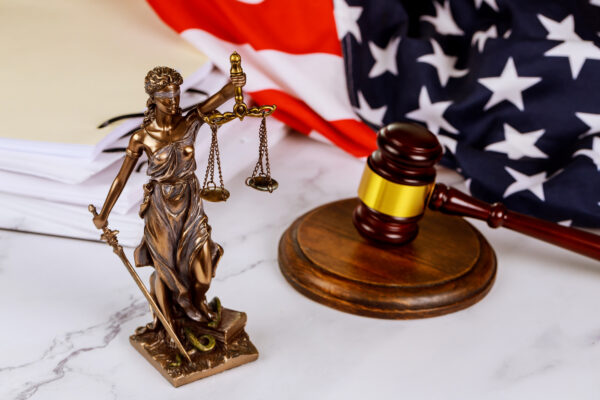By Paul Coble, chair of Rose Law Group’s intellectual property & artificial intelligence department

One of the biggest concerns created by relatively new artificial intelligence (AI) is the ability for people to easily make convincing digital impersonations of others, often referred to as “deepfakes,” with or without their consent. Shortly after the release of generative-AI tools, the internet was flooded with fake pornography of Taylor Swift and other celebrities, and the US elections have already seen efforts to use deepfake impersonation to suppress votes. On May 21, 2024, Gov. Hobbs signed House Bill 2394 into law as A.R.S. § 16-1023, one of many state efforts to address the threat of digital impersonations. Here are 6 things you should know about Arizona’s new anti-deepfake law:
- The law provides a cause of action for deepfakes.
The AZ anti-deepfake law applies to all “Digital Impersonations,” which includes all media that (1) has been digitally manipulated to convincingly replicate a person’s likeness; (2) was created with the intent to deceive the audience about the authenticity of the media; (3) would lead a reasonable audience to believe it is an accurate depiction of the person; (4) is not commentary, parody, satire, criticism, or artistic expression; and (5) was not authorized by the subject. Notably, this definition excludes media that portrays a person in an extremely negative manner, but is so extreme that reasonable people would not believe that it is an accurate depiction of something the person said or did.
- It applies to all Arizona citizens and candidates for public office.
States across the country are starting to reign in deepfakes of various types. Some states have focused on impersonations of political figures while others have targeted deepfakes that are sexual in nature, regardless of the fame or political status. Arizona’s anti-deepfake law applies to both political candidates (including candidates for public office or political party office) and any Arizona citizens who are (1) depicted nude or in a sexual act; (2) depicted committing a crime; (3) reasonably expected to suffer personal or financial hardship from the deepfake; or (4) likely to suffer irreparable reputational damage. Political candidates are only strictly protected by the statute for the 180-day period immediately prior to a scheduled election for that office, but candidates who are also Arizona citizens are protected year-round from the more reputation damaging deepfakes.
- Some deepfake victims can obtain an injunction and damages.
To obtain an injunction against further publication or damages, the plaintiff must also be a non-public figure and the image must be excessively sexual in nature. If the publisher takes “reasonable corrective action” within 21 days of learning the impersonation was unauthorized, however, no injunction or damages are available. This means that injunctions banning further publication of deepfakes, or any damages from their publication, are unavailable to any public figures. Arizona citizens who are not public figures cannot enjoin or recover damages for any deepfake not involving sexual acts or genital nudity. It also means that a publisher can knowingly publish a damaging deepfake for 20 days after learning it is fake and can avoid any liability under the anti-deepfake statute, so long as they remove the media and take “reasonable corrective action” on the 21st day. Given today’s dissemination speed for controversial media and the minimal burden on publishers to remove digital media, 20 days could feel like an eternity for deepfake victims.
- Most plaintiffs will receive no tangible relief, even if successful.
Unless a plaintiff can establish the elements required for injunctive relief or damages, the anti-deepfake statute provides only for “declaratory relief.” Declaratory relief–whether preliminary or permanent–will not actually provide any actual relief for successful plaintiffs. In a non-declaratory civil action, a plaintiff asks the court to apply the law to direct the defendant to take, or refrain from taking, a specific action (an injunction) or to award the plaintiff monetary damages to compensate them for the defendant’s wrongful actions. Declaratory relief under the anti-deepfake statute, therefore, will not stop further publication or punish the deepfake publisher with any monetary damages.
Ordinarily, the findings in declaratory judgment actions can be used in other causes of action to prevent a party from relitigating disputes already adjudicated, a legal doctrine called “estoppel.” The AZ anti-deepfake statute, however, expressly prohibits any preliminary declaratory relief from being considered in other proceedings or even later in the same proceeding. Under the anti-deepfake statute, therefore, impersonations of public figures or that do not include nudity or excessively sexual acts will only be entitled to a statement by the court stating that finding–no injunction, no damages, no estoppel.
- Publishers may be liable if they have actual knowledge of the unauthorized impersonation or fail to take timely corrective action.
As noted above, injunctions and damages are only available under the statute in certain limited circumstances. One of the requirements for either type of relief is that either the publication was made with actual knowledge that the media was an unauthorized impersonation, or that the publisher failed to take reasonable corrective action within 21 days of learning that information. Reasonable corrective action, according to the statute, includes removing or disabling access to the media AND publishing a statement that the media was an unauthorized digital impersonation.
- There are various protections and safe-harbors for publishers of 3rd-party content.
Taking reasonable corrective action is only one of the various mechanisms that limit publishers’ liability under the AZ anti-deepfake statute for publishing unauthorized digital impersonations. The statute also carves out any media that the publisher conveys to the audience that the media is a digital impersonation or that the authenticity is disputed. Additionally, when a digital impersonation appears in a paid advertisement, the anti-deepfake statute only applies to the one who originated, ordered, placed, or paid for the advertisement and not, for example, to news channels, social media companies, or individuals who republish the offending advertisement.












